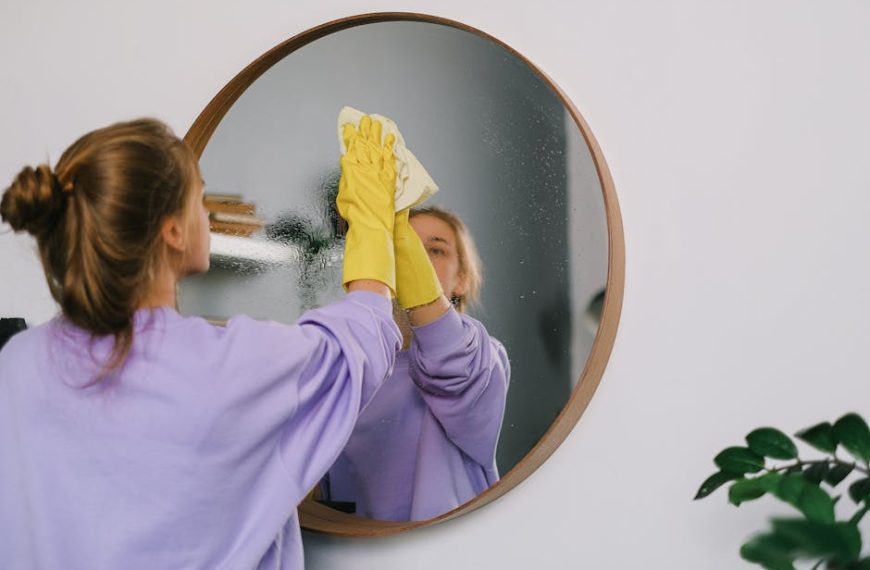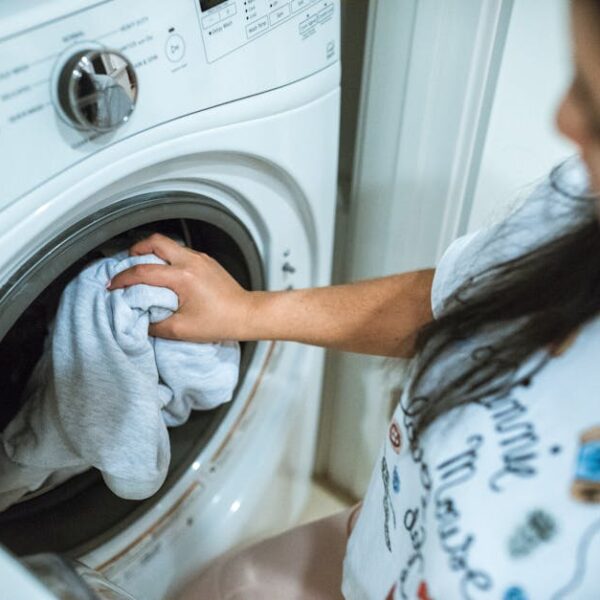We often look for the most efficient ways to deal with stubborn stains and unruly dirt around our homes, and sometimes, we think mixing potent cleaning agents can do the trick. You may have been advised, either online or through a friend, to mix detergent and vinegar for a supposedly powerful concoction. However, contrary to popular belief, combining these two agents can bring about counterproductive results. Uniting detergent and vinegar doesn’t make a super cleaner. Instead, they neutralize each other, canceling out the cleaning properties and potential benefits each possesses.
The Chemistry Behind Detergent and Vinegar
To understand how the detergent-vinegar combination works—or, more accurately, doesn’t work—we first need to delve into the basic properties of these substances. The primary focus hinges on their pH levels. Detergents are usually alkaline, which aids in the removal of greasy stains, while vinegar, which is acetic acid, leans on the acidic side helping to tackle mineral deposits like lime and rust.
Therefore, when you mix an acid (vinegar) and an alkali (detergent), the result is a neutral solution, in which neither the cleaning properties of an alkali nor the descaling traits of an acid are present. Effectively, you are left with a solution that has lost its cleaning power.
Common Misconceptions about Mixing Detergent and Vinegar
The idea that mixing detergent and vinegar will yield a robust cleaning agent is a common misconception. This belief stems from the individual cleaning strengths of detergent and vinegar. However, as explained earlier, the acid-base balance plays a crucial role in the effectiveness of both substances, and mixing them simply neutralizes their cleaning powers.
When and how should you properly use vinegar and detergent for household cleaning then? The best approach is to use them separately, given the specific types of dirt and stains they’re best at removing. A simple best practice is to use detergent for kitchen surfaces, dishes, and laundry due to its grease-cutting ability, while vinegar is best used for bathroom tiles, taps, and glass surfaces due to its descaling and streak-free cleaning properties.
Risks Involved in Mixing Detergent and Vinegar
The primary risk involved in mixing detergent and vinegar lies in a disappointing cleaning outcome. Since these substances neutralize each other, their combined use may lead to less effectiveness in eliminating stubborn stains and dirt. This might leave you with surfaces that appear clean but are actually teeming with bacteria and germs. And ironically, instead of saving resources by creating a supposedly super cleaner, the neutralization process can lead to waste.
Knowing these consequences, it’s important to be able to identify tell-tale signs of ineffective cleaning caused by the mixture. Keep an eye out for surfaces that still feel greasy or filmy after cleaning, or deposit build-up on surfaces that should have been de-scaled. Knowing what doesn’t work is as important as knowing what does when it comes to keeping your home clean and healthy.
The understanding that mixing vinegar and detergent is ineffective is essential. It can save us cleaning time, effort, and yes, even resources. Understanding when to use either substance and how to maximize their individual cleaning prowess allows us to use them to their full potential and achieve a cleaner, healthier home. In tandem with this knowledge, always remember: Not all mixtures yield better results.
Alternative Ways to Utilize Detergent and Vinegar in Cleaning
If mixing detergent and vinegar is out of the question, then how can we properly utilize these cleaning agents in the most effective way possible?
Firstly, let’s tap into the individual strengths of detergent and vinegar. Detergents are excellent for tackling grease and oil stains due to their alkaline nature. They’re superb for cleaning dishes, kitchen surfaces, and laundry. Conversely, vinegar, being acidic, is perfect for eliminating mineral deposits like lime and rust, making it great for cleaning bathroom tiles, taps, and giving glass surfaces a streak-free shine.
To maximize the potential of detergent and vinegar, use them separately and strategically. Here’s a concise checklist to guide you in cleaning with these substances:
- Identify the type of stain or dirt you want to clean.
- Use detergent for grease-related dirt or stains.
- Utilize vinegar for mineral deposits or stubborn stains on glass surfaces.
- Always rinse thoroughly after using either substance to ensure no cleaning agent residue is left behind.
Safe and Efficient Cleaning Mixtures You Can Try
So, you’ve decided not to mix detergent and vinegar. But are there other common household items that can be safely and effectively mixed with these cleaning substances?
Yes, indeed! When it comes to enhancing the cleaning prowess of detergent, baking soda is one household staple that can come in handy. Mixing detergent with baking soda can boost your detergent’s ability to fight grease. On the other hand, you can enhance vinegar’s cleaning properties by mixing it with lemon juice. The citric acid from the lemon complements the liquor of the vinegar, amplifying its stain-fighting power.
Below is a comparison table to present the pros and cons of these alternatives against a detergent and vinegar mixture.
| Mixture | Advantages | Drawbacks |
|---|---|---|
| Detergent and Baking Soda | A potent mixture that enhances the grease-fighting capability of detergent | May require thorough rinsing to remove baking soda residue |
| Vinegar and Lemon Juice | The citric acid from the lemon boosts the vinegar’s cleaning efficiency | Acidic nature of the mixture may not suit all surfaces |
| Detergent and Vinegar | Known cleaning agents | Neutralize each other, causing ineffective cleaning |
In conclusion, while vinegar and detergent are both effective cleaning agents, it’s paramount not to mix them. Instead, understand their distinct cleaning abilities and employ them strategically to keep your home clean and save valuable resources.
Key Takeaway:
- The combination of detergent and vinegar results in neutralization, which cancels out their individual cleaning properties and benefits.
- The misconception that mixing detergent and vinegar results in a robust cleaning agent is incorrect due to this neutralization effect.
- Using detergent and vinegar separately and strategically is recommended, with detergent best for greasy stains and vinegar for mineral deposits.
- Mixing detergent and baking soda enhances grease-fighting abilities, while a combination of vinegar and lemon juice increases stain-fighting power.
Maintaining cleanliness in our households need not be a complex chemistry assignment. Understanding the inherent properties of common cleaning agents can offer a valuable advantage. Use detergent for those greasy stains and vinegar to take care of stubborn mineral deposits. And remember, mixing these agents may not be the powerful concoction people often mistake it to be. Let the science guide your cleaning routines, and your home will surely thank you!
FAQs
Q: Is there a specific type of vinegar that works best for household cleaning?
A: White vinegar is commonly recommended for cleaning due to its clear color and strong acidity, which enhances its cleaning properties.
Q: Can I substitute baking soda with something else if I want to mix it with detergent?
A: Yes, you can use washing soda or borax as a substitute for baking soda while mixing with detergent, as they also have alkaline properties that enhance the grease-fighting efficacy of detergents.
Q: Are there any risks associated with using vinegar and lemon juice together for cleaning?
A: Yes, the combined acidity of vinegar and lemon juice can potentially harm certain types of surfaces. Always test the mixture on a small, inconspicuous area first to ensure it’s safe.
Q: Can the neutralization effect of mixing vinegar and detergent harm my clothes or any other materials?
A: No, the mixture shouldn’t cause any harm to your materials. However, it voids the cleaning properties, so your clothes may not get cleaned effectively.
Q: Are there any specific useful ratios for the recommended mixtures of detergent and baking soda or vinegar and lemon juice?
A: There aren’t set-in-stone ratios for these mixtures. However, a common suggestion is a 1:1 ratio. But ultimately, use your judgment based on the severity of the stain or dirt.
Your understanding of this article is highly valued. Share it with others, and cherish more informative reads on our website.












